Electoral volatility | Page 2
Volatility: Much Movement but no Earthquake

Personalisering en electorale volatiliteit
La volatilité électorale
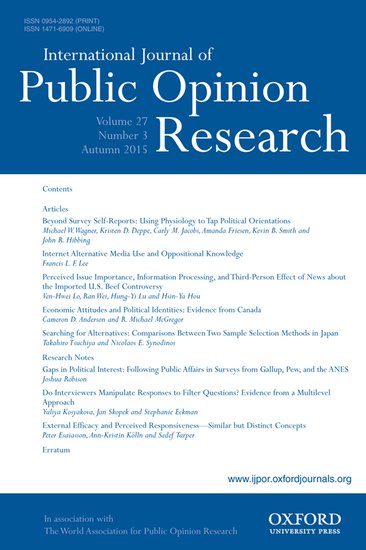
The Noise of the Vote Recall Question
Abstract Using recall questions in cross-sectional electoral survey research entails a high level of measurement error. Comparing data from Belgium, the Netherlands, and Germany, we observe that recall information leads to an important underestimation of voter volatility, compared with data that are based on panel observations. While political sophistication helps us to explain measurement error, […] Read more
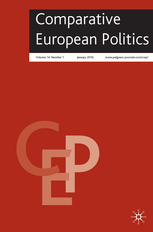
Economic Indicators and Electoral Volatility
Abstract Economic voting theory assumes that on an individual level voters react to economic indicators to hold incumbents responsible for the performance of the economy. On an aggregate level, this would imply that there is an association between economic indicators and levels of volatility since voters have to switch parties if they want to punish […] Read more
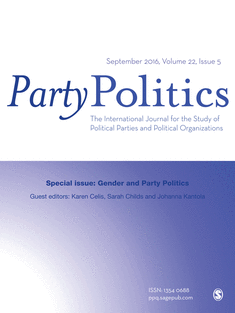
Comparative Investigation into the Effects of Party-System Variables on Party Switching
Abstract Previous comparative electoral studies using aggregate data indicate the importance of party-system variables, such as polarization and the number of parties, with regard to the level of volatility between two elections. Research using individual level data has shown elements, such as political knowledge, political disaffection and party identification, that explain why voters remained faithful […] Read more
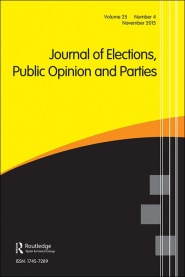
Volatile Voters, Short-Term Choices?
Abstract The increase of electoral volatility in established democracies is typically interpreted as proof that short-term factors are increasingly important determinants of vote choice. The empirical evidence to support this assertion, however, is relatively weak. This paper addresses this question by investigating the impact of both long- and short-term determinants on the vote choices of […] Read more

Staying with the Party, Switching or Exiting?
Abstract A large body of literature has investigated the factors that lead to abstention on the one hand or vote volatility on the other hand. We argue in this paper that the most fruitful approach is to simultaneously consider the exit, voice, and loyalty options. The analyses are based on data from the Comparative Study […] Read more

Political Sophistication and Vote Intention Switching
Abstract This article investigates the link between political sophistication and electoral volatility. Showing that there is disagreement in the literature on whether switching party preferences is related to low or high levels of political sophistication, it is then argued that the effect of sophistication on vote switching might differ depending on when switching is measured. […] Read more
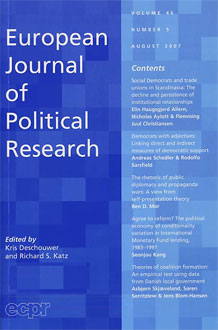
Bridging the Ideological Space
Abstract Scholars have investigated the characteristics of volatile voters ever since the first voter surveys were carried out and they have paid specific attention to the role of political sophistication on vote switching. Nevertheless, the exact nature of this relationship is still unclear. With increasing volatility over the past decades this question has furthermore grown […] Read more